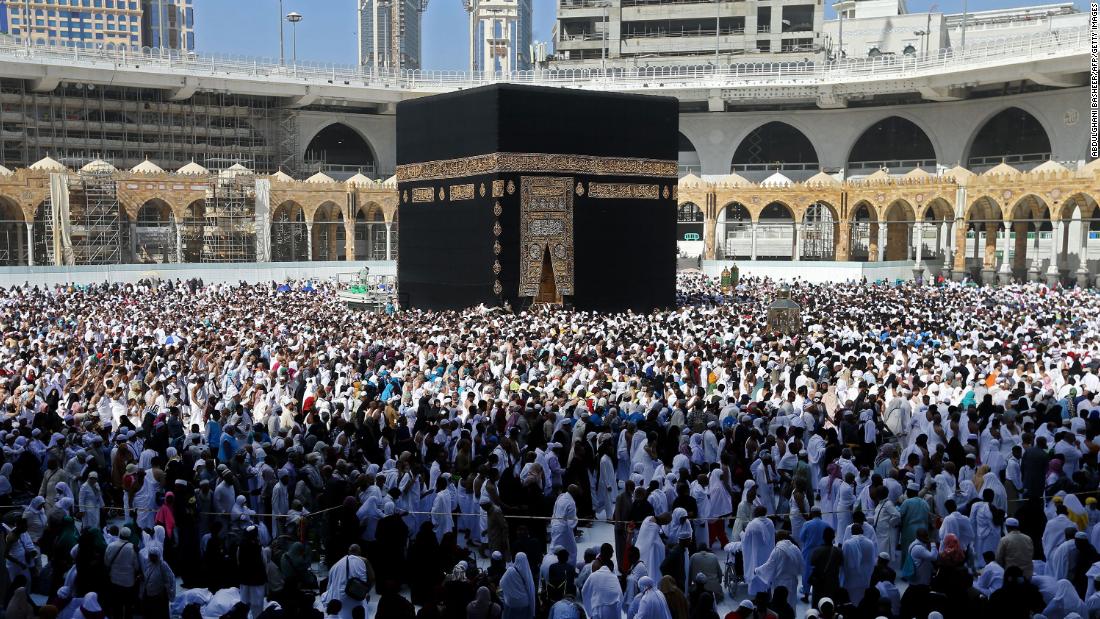Products You May Like
Saudi Arabia’s Ministry of Hajj and Umrah said the annual pilgrimage would be restricted to a very limited numbers of pilgrims of all nationalities who are already residing in the country, the Saudi Press Agency (SPA) reported.
A statement from the ministry said that as Covid-19 cases continue to grow globally, and because of the risks of coronavirus spreading in crowded spaces and from other countries, the Hajj will “take place this year with a limited number of pilgrims from all nationalities residing in Saudi Arabia only, who are willing to perform Hajj.”
“This decision is taken to ensure Hajj is safely performed while committing to all preventive measures to protect Muslims and adhere strictly to the teachings of Islam in preserving our health and safety,” according to the statement.
The ministry statement cited the Saudi Ministry of Health as saying that the risks from coronavirus “are expected to grow further, but there is no vaccine available yet for those infected by the disease. Global health security needs to be preserved.”
The ministry said it would be challenging to maintain a proper distance in crowded areas and prevent the spread of the virus.
Based on these concerns, the Hajj Ministry statement said, “the Kingdom of Saudi Arabia, whose top priority is to always provide care to enable Muslims to perform Hajj or Umrah rites safely and securely, has taken severe precautionary measures to protect pilgrims since the beginning of COVID-19.”
Saudi Arabia has recorded more than 160,000 cases and 1,307 deaths, according to Johns Hopkins University.
More than two million Muslims performed Hajj last year, and of those, more than 1.8 million pilgrims traveled to Saudi Arabia from abroad to take part.
In April, Saudi Arabia advised Muslims planning on attending the pilgrimage to put their plans on hold. Indonesia, which had planned to send 221,000 pilgrims to Mecca this year, announced June 2 it would not be sending anyone because of virus concerns.
Performing the Hajj is one of the five pillars of Islam and it is one of the biggest religious gatherings in the world. Hajj occurs two months and 10 days after Ramadan ends, during the Islamic month of Dhul-Hijjah.
The Hajj is scheduled this year to start at the end of July.
The height of Hajj corresponds with the major Islamic holy day Eid al-Adha, which commemorates Abraham’s readiness to sacrifice his son on Divine orders.
This article was originally published by Cnn.com. Read the original article here.



